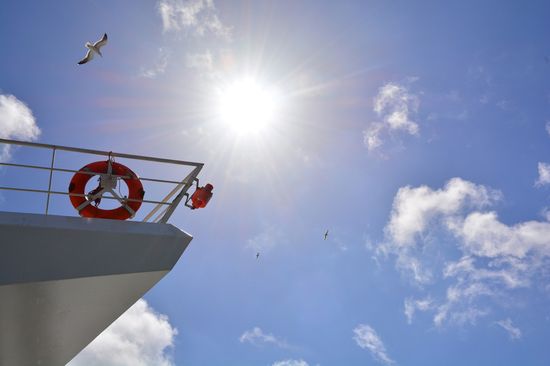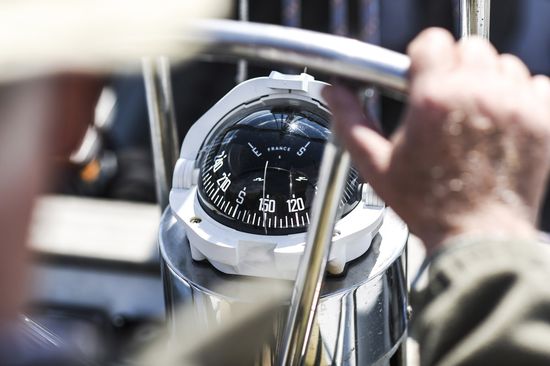EcoShip60: Innovative propulsion and energy systems for ships up to 60 metres in length

The German government has set itself the target of reducing greenhouse gas emissions by 40 percent by 2020 relative to 1990 levels. As a result of limiting permissible exhaust emissions in certain waters and rising oil prices, alternatives to diesel and petrol engines are also becoming increasingly attractive for ship operators. In shipbuilding, a large portion of research has so far been concentrated exclusively on alternative propulsion systems for larger ship types with an output of around 4,000 kilowatts or more. There is no systematic, holistic or sustainable approach to developing alternative propulsion systems for smaller ship types with significantly lower outputs and lengths of up 60 metres. The EcoShip60 network is helping to close this gap.
“EcoShip60 aims to develop environmentally friendly alternative propulsion systems for small to medium-sized work boats and patrol boats,” explained Ralf Duckert, Managing Director of DSN Connecting Knowledge and EcoShip60 Network Manager. “These alternative propulsion systems should enable users to operate at low costs and with a high output and range,” he said.
Companies from all over Northern Germany work together in EcoShip60
A total of 17 companies and research institutions from all over Northern Germany have joined forces in the network, including members of the Maritime Cluster Northern Germany (MCN). MNC members Armaturen Wolff Friedrich H. Wolff, Lübeck Yacht Trave Schiff, Otto Piening, S.M.I.L.E. Engineering, SDT – Schiffsdieseltechnik Kiel, Trik-Pumpen and Weihe are EcoShip60 network partners in the SME sector. The Fraunhofer Institute IFAM and the Maritime Centre of the Flensburg University of Applied Sciences – both also MCN members – are involved as research partners.
The Maritime Cluster Northern Germany is an associated EcoShip60 network partner. “During the development of EcoShip60, the Maritime Cluster Northern Germany provided us with advice and support – from the idea to the approved and funded project,” said Dipl.-Ing. Knut-Michael Buchalle, Managing Director of S.M.I.L.E. Engineering. “Among other things, the cluster supported us in our search for suitable project partners and in the selection of the right funding programme”.
Converting existing technical solutions into holistic solutions

The technological focus of the EcoShip60 network is on transforming existing technical solutions into new holistic solutions in order to optimise the overall ship system and to significantly reduce environmental pollution (CO2 and noise). Such holistic technical solutions at competitive prices still do not exist to this day.
The EcoShip60 network concentrates on three different propulsion systems. All consist of an electric motor, a battery and an additional component as the primary energy source: an internal combustion engine based on the Otto cycle, an internal combustion engine based on the diesel cycle, or a fuel cell.
The special feature of the network’s approach is the holistic consideration of all technological sub-areas and their interdependencies. For example, how does the choice of a propulsion system affect the hull and spatial concept of a ship? An economic review and strategy development will guide the implementation of the technological roadmap.
Financing and schedule
The development of EcoShip60 is supported, amongst others, by the “Zentrales Innovationsprogramm Mittelstand – ZIM” (Central Innovation Programme for SMEs) of the Federal Ministry for Economic Affairs and Energy. The network was launched in autumn 2017. In 2018, the first step will be to develop a technological roadmap and research and development projects from the following technological sub-areas of a propulsion system: power source, gearbox, electric motor, control unit, propeller, power collector, boiler and ship operation.
